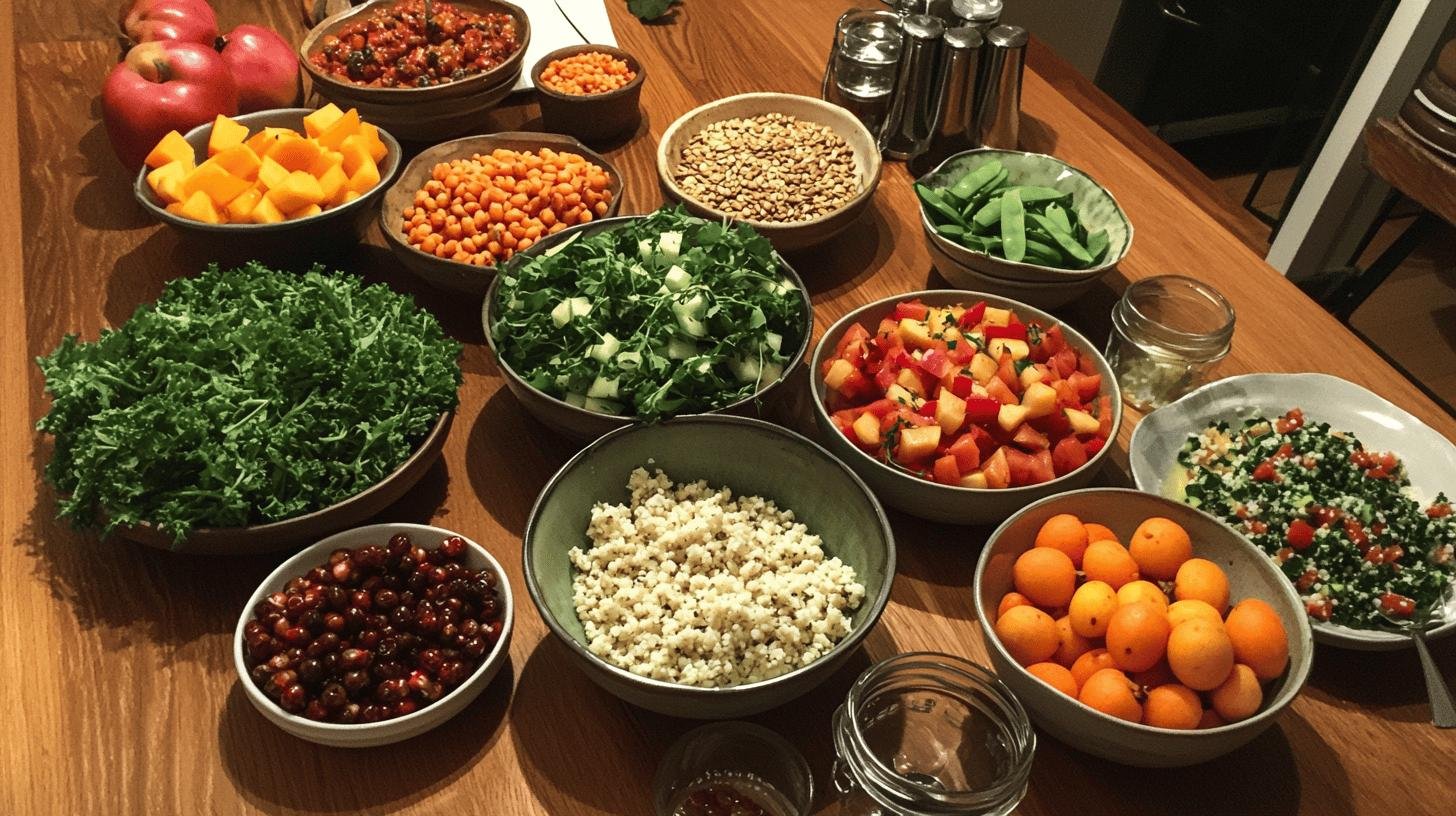TL;DR:
- Kidney Disease Prevalence: 1 in 7 U.S. adults (37 million) have kidney disease, mostly unaware.
- Risk Factors: Major ones include diabetes and high blood pressure.
- Prevention Strategies:
- Regular check-ups for early detection.
- Lifestyle changes: Exercise, quit smoking, and dietary modifications (reduce sodium, eat fruits/veggies).
- Diet: Adopt a Mediterranean or DASH diet; focus on potassium-rich foods, fiber, and plant-based proteins.
- Exercise: Aim for 150 minutes weekly (walking, sports, aerobics).
- Manage Blood Pressure & Diabetes: Keep BP <140/90 mmHg; monitor blood sugars.
- Avoid Smoking & Excessive Alcohol: Both increase kidney disease risk.
- Importance of Check-Ups: Early detection through routine tests (urine and blood tests).
Ever wonder why your kidneys are the unsung heroes in your body? They silently work hard, filtering waste and keeping things in balance. Yet, chronic kidney disease (CKD) is quietly affecting about 1 in 7 adults in the U.S., and 90% of them don’t even know it! But don’t worry, I’ve got your back. Chronic Kidney Disease Prevention Strategies can play a vital role in keeping your kidneys in tip-top shape. From understanding risk factors to lifestyle tweaks, there’s a lot we can do together to ward off CKD. Ready to dive in? Let’s start protecting your health!
Understanding Chronic Kidney Disease Prevention Strategies
Did you know about 1 in 7 adults in the U.S. has kidney disease? That’s over 37 million people, and 90% of them are unaware. Early detection is crucial for kidney health.
How can you keep your kidneys happy? Regular check-ups are key. Simple tests during routine visits can flag issues before they become serious. It’s like catching a flat tire before it leaves you stranded.
Let’s talk about risk factors. Two major ones are diabetes and high blood pressure. They’re like the Bonnie and Clyde of kidney health, causing chaos if unchecked. Monitoring your levels is crucial if you have either condition.
Here are some strategies to keep your kidneys in top shape:
- Regular Check-Ups: Schedule appointments and stick to them. Early detection can save you a lot of trouble.
- Lifestyle Changes: Exercise regularly and quit smoking. These changes can make a huge difference.
- Dietary Modifications: Reduce sodium and eat more fruits and veggies. Your kidneys will be grateful!
Have questions about keeping your kidneys healthy? Ask away, and let’s explore the details!
Dietary Adjustments for Optimal Kidney Health

Have you ever wondered how your diet affects your kidneys? Let’s dive into kidney-friendly foods! A healthy diet, like the Mediterranean or DASH diet, can be a lifesaver for your kidneys. These diets provide VIP treatment to your body, lowering blood pressure and lipids, which benefits your kidneys.
So, what should you eat? Focus on fruits, veggies, low-fat dairy, whole grains, and lean proteins. These foods are like little soldiers fighting kidney disease. Avoid sodium, sugars, and unhealthy fats—the villains targeting your kidneys.
Here’s a quick guide for diet modifications:
- Reduce Sodium Intake: Limit salt use. Try herbs and spices for flavor.
- Increase Potassium-Rich Foods: Add bananas, sweet potatoes, and spinach. They’re potassium powerhouses.
- Focus on Fiber and Protein Balance: Whole grains and lean meats are essential for smooth functioning.
Plant-based proteins are underrated superheroes. Adding beans, lentils, and tofu is great for your kidneys and body. Try it, and your kidneys will thank you!
Do you have diet questions or need recipe ideas? Let me know, and let’s keep those kidneys in shape!
Exercise Routines and Kidney Health
Exercise isn’t just about looking good—it’s your kidneys’ best friend! Regular activity helps maintain a healthy weight, controls blood pressure and cholesterol, and reduces the risks of diabetes and kidney disease. It’s like giving your kidneys a protective shield.
What exercises should you try? Here’s how to keep your kidneys happy:
- Walking: Aim for 150 minutes a week. It’s easy on joints and effective.
- Sports: Join a local team or club for fun, socializing, and a competitive edge.
- Aerobic Exercises: Swim, cycle, or dance. Mix it up and keep it fresh!
Fitting exercise into your routine without feeling overwhelmed is possible. Start small with a 10-minute walk at lunch or a quick dance session at home. Gradually increase to longer workouts. Remember, consistency matters more than perfection.
Have a favorite way to stay active or need starting tips? Ask away, and let’s keep those kidneys—and you—healthy!
Managing Blood Pressure and Diabetes for Kidney Protection

Wonder why doctors talk about blood pressure and diabetes so much? They’re double-edged swords for your kidneys. High blood pressure and diabetes are leading causes of kidney disease. They damage the tiny blood vessels that keep kidneys running smoothly if uncontrolled.
How do we stop this duo? Managing them through lifestyle changes and medication is key.
Aim for blood pressure levels below 140/90 mmHg. This target benefits your kidneys. Keep blood sugar at healthy levels, especially with diabetes.
Here’s your action plan:
- Lifestyle Changes:
- Eat a balanced diet, like DASH or Mediterranean.
- Exercise regularly—150 minutes a week is ideal.
- Quit smoking—your kidneys will appreciate it!
- Medication Management:
- Stick to prescribed meds, even on busy days.
- Consult your doctor if you’re feeling off.
- Daily Habits:
- Reduce salt.
- Manage stress with mindfulness or yoga.
Regular monitoring is essential. Tracking blood pressure and sugar is like having a crystal ball for kidney health. Regular check-ups can catch issues early, preventing major kidney problems. Don’t skip appointments—they’re your kidneys’ bodyguard.
Have questions or need management tips? Let me know!
Lifestyle Changes for Long-term Kidney Health
Smoking and alcohol—common bad habits for kidneys. Smoking raises blood pressure and damages kidneys over time. Excessive alcohol increases blood pressure, leading to hypertension—a major kidney disease risk. Quitting these habits is crucial for kidney health.
Here’s how to handle these challenges:
- Quitting Smoking:
- Set a Quit Date: Choose a day and stick to it.
- Seek Support: Talk with friends or join a group.
- Use Resources: Consider nicotine replacement or meds.
- Reducing Alcohol Intake:
- Set Limits: Follow guidelines—one drink daily for women, two for men.
- Choose Wisely: Attend events that don’t focus on drinking.
- Track Your Intake: Keep a drink diary for accountability.
Other lifestyle changes can help your kidneys, too. Stress management is vital—stress affects blood pressure, so try meditation or yoga. Maintaining a healthy weight eases kidney strain.
Considering changes? Try one suggestion and see how it feels!
The Role of Regular Medical Check-ups in Kidney Disease Prevention

Why are regular check-ups important for kidney health? The answer is early detection. Screenings are like security for your kidneys, catching issues early. For those with diabetes, hypertension, or a family history, these check-ups are a must.
During visits, doctors use tests to check kidney health:
- Urine Test (Albumin Creatinine Ratio): Looks for protein in urine, an indicator of kidney issues.
- Blood Test (Glomerular Filtration Rate): Measures how well kidneys filter blood.
Early detection saves lives. Spotting kidney issues early allows for prompt intervention, potentially slowing chronic kidney disease. This proactive approach provides more options and better health outcomes. Keep those check-ups on your calendar—they’re your kidneys’ ally!
Personalized Health Plans and Direct Primary Care
Do you feel like healthcare is more about forms than people? Direct primary care changes that by focusing on you. It’s like having a healthcare best friend who understands kidney health. Personalized health plans make CKD prevention easy.
Here’s why direct primary care benefits your kidneys:
- Affordability: Pay a simple monthly fee, avoiding surprise bills.
- Accessibility: Enjoy unlimited visits and contact your doctor anytime.
- Tailored Health Plans: Create a plan focused on you and your kidney health.
Imagine a healthcare provider who partners with you. This collaboration is about your health goals. They work with you to create a plan fitting your life, making kidney health management easier. Direct primary care provides tools and support to lead your health journey.
Questions about starting personalized care? Let’s chat and make your kidneys happy!
Final Words
Living better with chronic kidney disease prevention strategies is within reach. We’ve unpacked the essentials—from pinpointing risk factors to embracing lifestyle shifts like a kidney-friendly diet and exercise.
By managing diabetes and blood pressure, you’re giving your kidneys some TLC.
Remember, regular medical check-ups are a must for spotting issues early. Direct Primary Care can guide you with personalized health plans and proactive measures.
These steps aren’t just about prevention but about nurturing long-term health.
Stay consistent, and your kidneys will thank you!
FAQ
What food to eat to prevent kidney failure?
A: Eat a kidney-friendly diet like the Mediterranean or DASH. Focus on fruits, veggies, whole grains, and lean proteins. Limit sodium, sugars, and unhealthy fats. These choices help support kidney health.
How can I improve my kidney function naturally?
A: Maintain a healthy diet, stay active, and manage blood pressure and diabetes. Regular check-ups and lifestyle changes like quitting smoking can also naturally enhance kidney function.
How to improve kidney function to avoid dialysis?
A: Early detection, a balanced diet, regular exercise, and managing blood sugar and blood pressure are crucial. Regular consultations with healthcare providers are also essential to avoid the need for dialysis.
Foods to avoid for kidney health
A: Avoid high-sodium foods, sugary drinks, and unhealthy fats. Limiting processed foods and red meat helps protect kidney health and prevent damage.
How to protect your kidneys naturally?
A: Stay hydrated, eat a balanced diet, exercise regularly, and avoid smoking. Regular medical check-ups are vital, too, as they ensure early detection and prevention of kidney problems.
Supplements to improve kidney function
A: Some vitamins and minerals may support kidney health, but it’s essential to consult a healthcare provider before taking supplements. They can guide proper dosage and combinations.
The best exercise for kidney health
A: Regular physical activity, such as walking, aerobics, or sports, maintains healthy weight and blood pressure. Aim for at least 150 minutes of moderate exercise weekly to support kidney function.
How to prevent kidney disease?
A: Prevent kidney disease by managing diabetes and hypertension, maintaining a healthy lifestyle, and attending regular medical check-ups. Early detection through simple tests can be very effective.
Can you improve kidney function?
A: Yes, improving kidney function is possible with a healthy lifestyle, diet changes, regular exercise, and good blood pressure and diabetes management. Regular consultations with a doctor are recommended.

